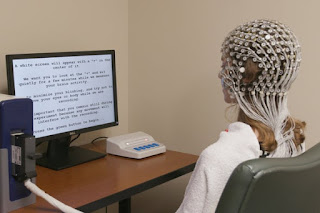People getting treated for
depression often have to suffer through months of trial-and-error testing of
different drugs to see which of them—if any—will help. For a long time,
scientists and clinicians have hoped for a biological means of diagnosing depression
or predicting which patients will do better on a given treatment. A new study
takes a step toward the latter kind of prediction by finding a distinctive
signature with the noninvasive technique of electroencephalography (EEG) to
test who will benefit from one common antidepressant. The study followed more
than 300 people with depression as they began taking the drug sertraline
(Zoloft) or a placebo. A computer algorithm could discern the EEGs of those who
fared well on the drug from those who did not. Trained on one group, the
algorithm also effectively predicted results in several others.
The work is preliminary and needs
to be confirmed with further studies and expanded to include other treatments,
such as different antidepressants, transcranial magnetic stimulation and
psychotherapy. Right now doctors give patients whichever antidepressant they
like best, and then—for all choices in this class of drugs—they have to wait
six to eight weeks to know whether it is working or not. If the drug does not
work well, it might be another six weeks before they know whether a different
dose or a new drug is more effective. Meanwhile many of the people who seek
medication are at risk for suicide or too depressed to function normally. Today
about 40 percent of patients will respond to the first drug they are given. In
the study, about 65 percent of patients’ whose EEG signature suggested they
would respond well to sertraline did so.
More information:
